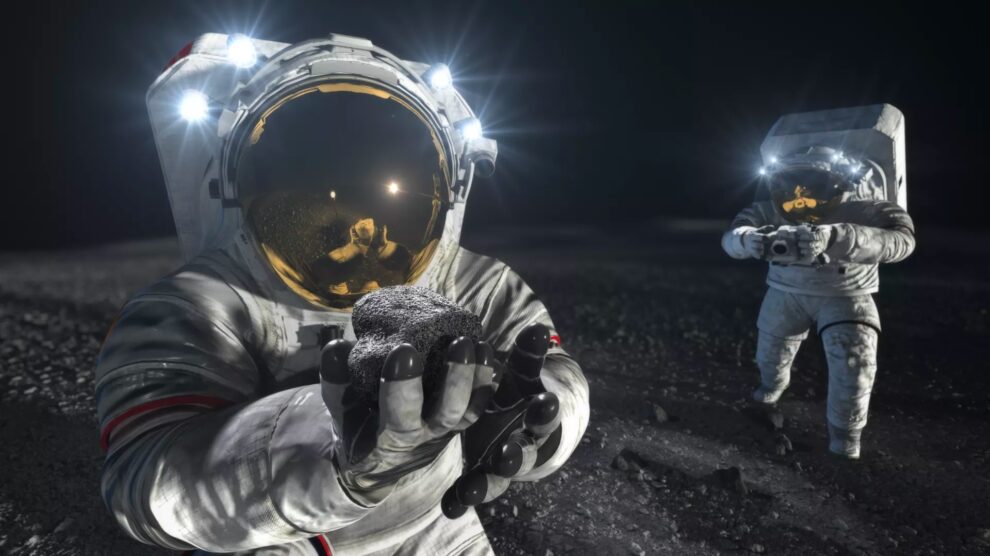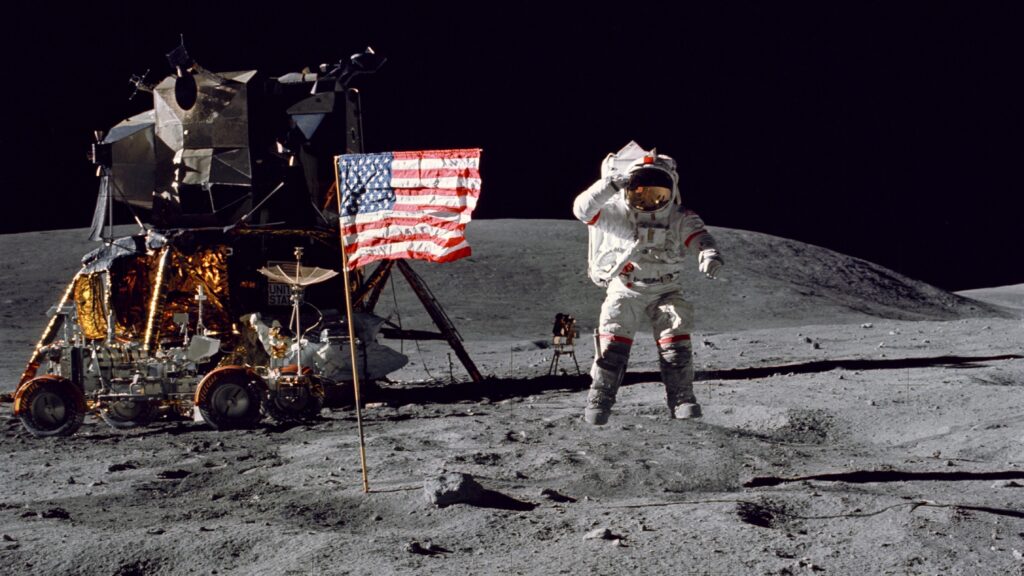Why Does the Moon Need Its Own Time Zone?
Now, you might be scratching your head and thinking, “Hold on a sec, why can’t we just use Earth time on the Moon?” Great question! Let’s break it down:
The Lunar Day Dilemma
Picture this: You’re an astronaut on the Moon, trying to schedule your daily tasks. The problem? A day on the Moon lasts about 29.5 Earth days. That means you’d experience about 14 Earth days of sunlight followed by 14 Earth days of darkness. Try setting your alarm clock for that!
The Relativity Wrinkle
Here’s where things get really wild. Thanks to our good friend Albert Einstein and his theory of relativity, time actually passes slightly faster on the Moon than on Earth. We’re talking microseconds here, but in the world of precise space navigation and communication, those tiny differences can add up to big problems.
NASA’s Lunar Time Zone: What’s the Plan?
Alright, so now that you understand why we need a lunar time zone, let’s dive into what NASA has up its space-suit sleeve:
Coordinated Lunar Time (LTC)
NASA is working on developing what they’re calling “Coordinated Lunar Time” or LTC. Here’s what you need to know:
- It will be synchronized with Coordinated Universal Time (UTC) on Earth
- LTC will account for the time dilation effects of relativity
- The system will likely use atomic clocks for ultra-precise timekeeping
Why It’s a Game-Changer
You might be thinking, “Okay, cool, but why should I care about lunar time?” Well, buckle up, because this is where things get exciting:
- Artemis Program Support: NASA’s Artemis program aims to return humans to the Moon and establish a permanent presence there. A standardized lunar time will be crucial for coordinating missions and activities on the lunar surface.
- Precise Navigation: When you’re zipping around in space, even tiny timing errors can lead to huge navigation mistakes. LTC will help ensure spacecraft can navigate accurately to and from the Moon.
- Scientific Research: Accurate timekeeping is essential for various scientific experiments and observations conducted on the Moon.
- Future Lunar Economy: As commercial activities on the Moon become a reality, a standardized time system will be crucial for scheduling, logistics, and commerce.
The Challenges of Lunar Timekeeping
Now, before you start planning your lunar vacation and setting your watch to Moon time, let’s talk about some of the challenges NASA faces in creating this new time zone:
Syncing with Earth
One of the biggest hurdles is keeping lunar time synchronized with Earth time. This involves:
- Accounting for the varying distances between Earth and Moon due to the Moon’s elliptical orbit
- Dealing with communication delays between Earth and Moon (radio signals take about 1.3 seconds to travel each way)
- Adjusting for relativistic time dilation effects
Hardware Hurdles
Developing timekeeping technology that can withstand the harsh lunar environment is no small feat. We’re talking about:
- Extreme temperature fluctuations (from -280°F in the shade to 260°F in direct sunlight)
- Radiation exposure
- Dust that can interfere with sensitive equipment
The Future of Space Timekeeping
Alright, space cadets, let’s put on our futurist hats and imagine what this lunar time zone could mean for the future of space exploration:
Interplanetary Time Standards
The development of LTC could be the first step towards creating a standardized timekeeping system for the entire solar system. Imagine having Martian Time, Jovian Time, or even Plutonian Time!
Space Tourism
As commercial space travel becomes a reality, tourists visiting the Moon will need to adjust their watches (and their bodies) to lunar time. “Lunar jet lag” could become a real phenomenon!
Lunar Colonies
Permanent settlements on the Moon will need a consistent time system for daily life, work schedules, and coordination with Earth. LTC could become as natural to lunar colonists as your local time zone is to you.
What This Means for You
Now, you might be thinking, “This is all fascinating, but how does it affect me here on Earth?” Great question! Here’s why lunar timekeeping matters to us earthbound folks:
Technological Spin-offs
The development of ultra-precise timekeeping technology for the Moon could lead to advancements in Earth-based technologies. Think improved GPS accuracy, more efficient telecommunications, and even better-synchronized financial trading systems.
Scientific Discoveries
Accurate lunar timekeeping could enable new types of scientific experiments and observations on the Moon, potentially leading to groundbreaking discoveries that benefit us all.
Inspiration and Education
The concept of lunar time provides a fantastic opportunity to engage people (especially young students) in discussions about space, time, relativity, and the challenges of space exploration.
The Bottom Line: A Giant Leap for Timekeeping
NASA’s development of a lunar time zone is more than just a cool space fact – it’s a crucial step in our journey to become a multi-planetary species. It represents the kind of forward-thinking and problem-solving that space exploration demands.
As we stand on the brink of a new era of lunar exploration, the creation of Coordinated Lunar Time reminds us of the incredible challenges and opportunities that lie ahead. It’s a testament to human ingenuity and our unending quest to understand and explore the cosmos.
What Do You Think?
We want to hear from you! What are your thoughts on the Moon getting its own time zone? How do you think it will impact future space exploration? And most importantly, would you be willing to adjust your watch for a trip to the Moon? Drop your comments below and let’s get this cosmic conversation started!
Remember, whether you’re a seasoned astronomer or just someone who likes to gaze up at the night sky, we’re all part of this grand adventure of space exploration. So keep looking up, stay curious, and who knows? Maybe someday you’ll be setting your watch to lunar time!











Add Comment